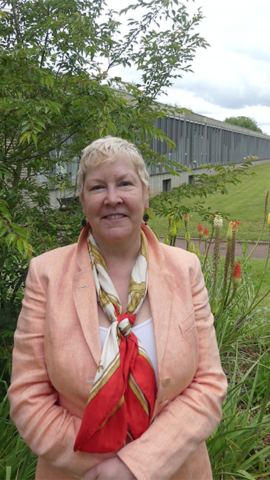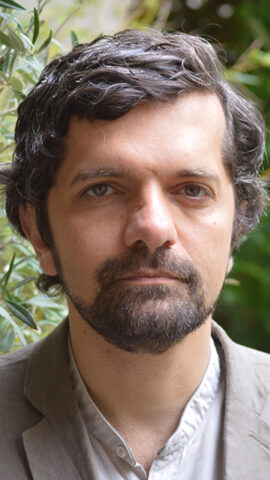15th years of partnership with HEC Paris
Another anniversary to mark this spring: We’ve been working for 14 years with HEC Paris, one of France’s top business schools. We promote its innovative ideas, breakthroughs, questions and proposals, publishing a concise synthesis, in cooperation with the researchers. Here are our 12 favorite articles from the past two years.
Can financial and social missions truly coexist within companies?
A number of business leaders and researchers have promoted the idea that social and financial goals are complementary. That may be true, but if so, why aren’t all companies pursuing these dual goals? Tomasz Obloj suggests it is because of tensions between the two aims – and proposes ways to diminish them.
“Can Financial and social missions truly coexist within companies?” by Tomasz Obloj (HEC, May 2021).
How brands can fight gender stereotypes in ads
Men and women value a product differently depending on whether it has a male or female brand representation – think Mr. Clean or Betty Crocker. Specifically, female-identified brands are less appealing to male shoppers. But Tina M. Lowrey and her coauthors have found a relatively simple way to combat this gender bias.
“How brands can fight stereotypes in ads” by Tina M. Lowrey (HEC, May 2021).
Gender difference on crowdfunding platforms: What pitches work?
On prosocial crowdfunding platforms such as Kiva, which benefit low-income entrepreneurs, women-led campaigns tend to be significantly more successful than men’s. To find out why, Santosh B. Srinivas sought to sort out gender differences in the funding requests entrepreneurs made on the site.
Trust in scientists key to compliance with pandemic policies
As the world faces a new COVID-19 variant and infections rise in many parts of the globe, adherence to pandemic restrictions and vaccination policies – considered by scientists to be essential to controlling the pandemic – has been uneven, sometimes openly hostile. Yann Algan and his coauthors shed light on key factors to instilling citizen trust and compliance with public health measures.
“Trust in scientists key to compliance with pandemic policies” by Yann Algan (HEC, December 2021).
“A $%^* sexist program”: Detecting and addressing AI bias
A major issue facing companies that use AI, algorithmic bias can perpetuate social inequalities – as well as pose legal and reputational risks to the companies in question. Christophe Pérignon offers a statistical method for tracking down and eliminating unfairness.
Why activist hedge funds target socially responsible firms, and how executives and investors can counteract them
With their controversial tactics aimed at maximizing shareholder profit, influential activist hedge funds undermine sustainability practices, which they consider wasteful. Rodolphe Durand shows that companies with strong CSR records can divert the attention of activist hedge funds, and that policymakers and socially minded investors can intervene, too.
Thinking about time flying? It can affect your decision making
When the clock in our minds ticks loudly, it changes not only our perspective of the time remaining in our lives, but also how we process information. A trio of researchers led by Anne-Sophie Chaxel investigated how thinking about the concept of time can affect our decision making. This could explain biases in hiring, voting and many other contexts.
Yes, you can be trained to make better decisions
Mental distortions known as cognitive biases often shift our judgment away from rational prescriptions. While such biases are normal – it’s just the way our brains are wired – they can lead to poor choices, sometimes with disastrous consequences. But new evidence presented by Anne-Laure Sellier shows how simple training can help us identify these biases and tremendously improve decision making.
“Yes, you can be trained to make better decisions” by Anne-Laure Sellier (HEC, March 2020).
Electronic word of mouth: What marketers need to know
When buying products, consumers often look at information written by other consumers on the internet. In other words, they turn to electronic word of mouth (eWOM). Marketers can take steps to generate, support and amplify eWOM and so influence consumers’ decision-making process. Kristine De Valck and Ana Babić Rosario have laid out an eWOM roadmap to help marketers understand its workings and enhance its effects.
Why so few women occupy the most lucrative jobs
Though women have made inroads into traditionally male-dominated sectors, gender gaps still exist in the most influential and best-paid jobs. Roxana Barbulescu looked beyond discriminatory hiring practices and women’s “self-selection” out of applying for highly desired jobs – and found explanations at the heart of corporate culture.
“Why so few women occupy the most lucrative jobs” by Roxana Barbulescu (HEC, March 2020).
Developing an automated compliance app to help firms comply with privacy regulations
A strong privacy policy can help firms save millions. If privacy policies have indeed become more important for firms and consumers today, the real challenge is ensuring compliance within and beyond the firm. A new tool developed by David Restrepo Amariles uses artificial intelligence to help managers, data protection officers and project leaders make privacy-preserving decisions and implement privacy by design.
The rise of rankings in global governance: How can they change the regulation of large corporations?
Ratings and rankings have become powerful tools in global governance, frequently used to motivate companies to be good corporate citizens. A wide range of environmental and social matters, such as access to medicine, climate change, obesity and working conditions increasingly escape the reach of national regulators. For such issues, who should set the rules about the responsibilities of corporations? Afshin Mehrpouya and Rita Samiolo explore the process behind the production of these rankings.
© Copyright Business Digest - All rights reserved
















